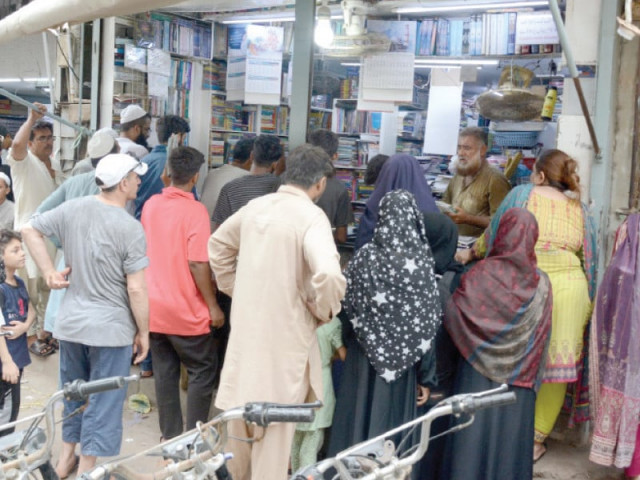The hidden language of twin cities' markets
Salesmen use secret codes to keep an edge over customers, protect profit margins

If someone frequently visits the markets of Rawalpindi and Islamabad, he/she may have overheard salesmen in shoe or garment shops speaking a language that seems unfamiliar, using numbers and expressions understood only by insiders.
Don't worry, it's not a new dialect it's a coded system of communication passed down through generations, with shopkeepers using it to keep an edge over customers, protect profit margins and all without anyone catching wind of it.
Let's break it down. One of the most commonly overheard words in this private terminology is "Bulla." But don't jump to a conclusion, it's not name-calling or an insult. In fact, it's the term salesmen use to refer to a customer, regardless of gender. When a customer walks into the shop, the sales team quickly assesses their appearance, clothing, and posture. If they're deemed a "Bulla," the game is on.
So, who created this code? Where did it come from? According to many elderly shopkeepers, the origins are unclear. "It comes from our forefathers," says one elderly Pindi salesman. "We call it 'Batori,' a collection of phrases that no one outside the market understands," another shopkeeper says.
Though there's no official record of "Batori" in trade talk history, it continues to thrive in the streets of the twin cities and beyond. Muhammad Afzal, a salesman with over 30 years of experience in Rawalpindi and Islamabad's markets, shares his insights with a grin. "This secretive set of slangs is passed down like a sacred trade secret. Every new salesman to the market is taught as an initiation ritual." According to Afzal, it helps conceal information from the customers about a product's real price and allows salesmen to control the process to ensure maximum gains. He continues, revealing a few more covert terms. "Bulla chokas ee khial rakhi," for example, roughly translates to, "This customer is well-off, treat him with respect." The message is clear from the senior or the shop owner to make sure this person walks out with something expensive in their bag.
Conversely, if a customer is just browsing, there's a code too: "Diwo ha aitch karo." It instructs a junior salesman to wrap it up and focus on more promising customers. The phrase "Bulla kasso kahrr ha" signals that a customer looks too poor to make a purchase. "It's a red flag. It tells the team to get rid of him quickly," Afzal explained.



















COMMENTS
Comments are moderated and generally will be posted if they are on-topic and not abusive.
For more information, please see our Comments FAQ